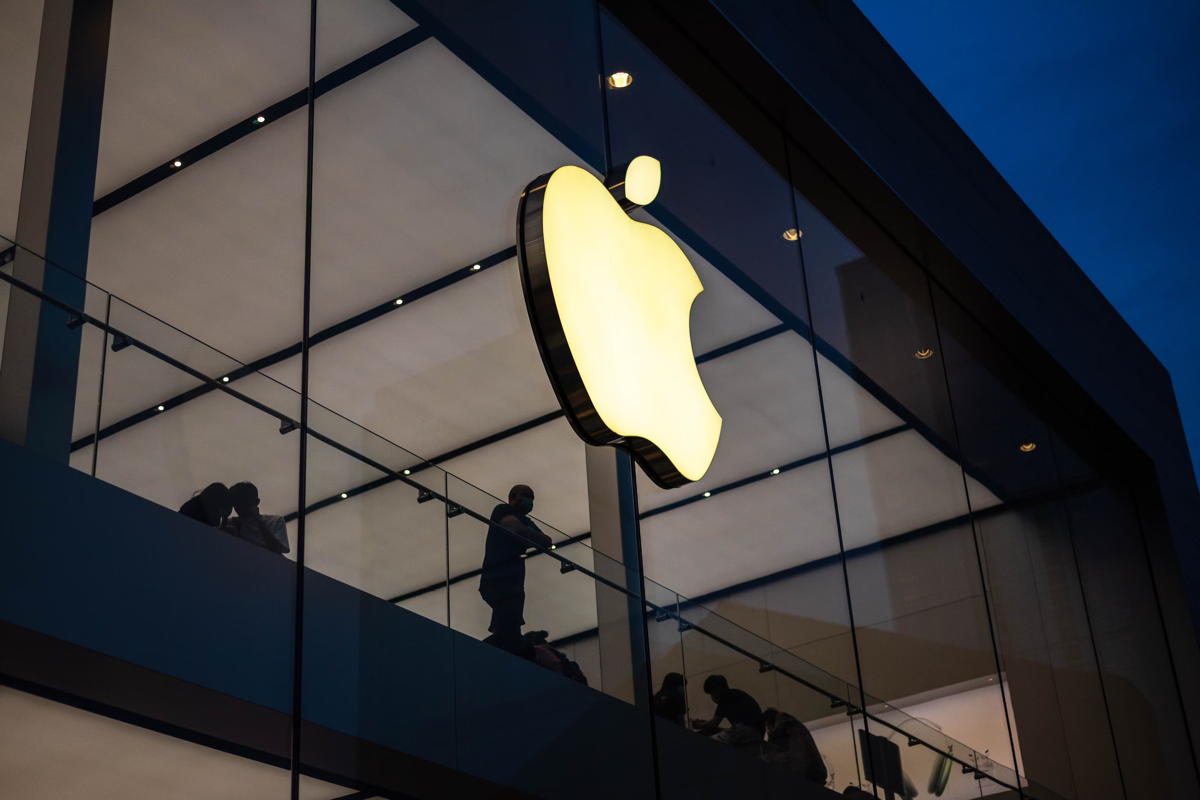

Apple Store, Chengdu, China. Image credit: Unsplash
The European Commission has “no choice” but to take legal action against Apple for infringing new EU competition rules when they come into effect in March, a legal expert has said.
Competition lawyer Damien Geradin, a professor of law at Tilburg University and visiting professor at University College London, said Apple’s plans for complying with the Digital Markets Act (DMA), which it announced last week, “takes the European Commission for fools”.
“Apple is not seriously complying with the DMA,” Gerardin wrote in a research note.
But he said the company’s actions were “not surprising”, as in previous court cases and investigations the company’s stance has been “to defend its practices to the fullest extent against change”.
Apple argues the DMA opens “new avenues for malware, fraud and scams… and other privacy and security threats”, justifying new controls such as app notarisation, authorisation steps for those developing marketplaces and warnings for those using alternative payment systems.
The company last week announced changes it plans to implement with iOS 17.4 to comply with the DMA, including greater browser choice and more options for streaming games.
But it gained the most attention with its proposed means of compliance with the DMA’s requirement to allow users to obtain apps from outside Apple’s official App Store.
The DMA actually requires large platforms to allow apps to be “sideloaded”, in theory similar to the way apps can be freely installed from the web on PCs and Macs.
Gerardin noted that Apple interprets “sideloading” in narrow terms, meaning the installation of apps from outside the App Store, and its method of compliance is to allow third-party marketplaces.
Along with this, however, it introduces a host of new controls that Gerardin argues “obfuscate its obligations under Article 6(4) the DMA”.
All apps, regardless of distribution channel, will now have to be notarised, in a baseline review focusing on “platform policies for security and privacy and to maintain device integrity”.
Apple’s changes allow alternative payment service providers and alternative marketplaces, as required under the DMA, but does so in ways that disincentivise their use, Gerardin argues.
For instance, those using alternative payment options are still required to pay Apple’s full commission rates, and cannot offer both the alternative method and Apple’s own payment system, meaning they would gain little or nothing and will “probably lose revenues through the reduced conversion rate associated with friction” due to the additional steps required to use alternative PSPs.
Apple’s new alternative business terms for apps – which are an optional choice for developers – offer little to developers while introducing new “junk” fees, Gerardin argued.
Developers who sign up to the new terms are offered reduced commission rates, but also pay a new recurring annual fee called the Core Technology Fee of 50 euro cents per new install or upgrade.
Gerardin called the CTF a “junk” fee that effectively nullifies any potential gain to developers from operating outside Apple’s App Store.
“App developers will still need to pay a commission to these alternative app stores (they won’t operate for free), plus the CTF,” he wrote.
“Thus, even if the alternative app store they select charge a lower standard commission… they could end paying as much (or more) than if they kept their app into the App Store. Most app developers will not bother.”
“Because the new business terms are onerous and don’t move the needle, it is not clear how many developers will sign in to these terms,” he added.
Two exceptions that have already come to light are Spotify – which is to introduce in-app purchases for the EU version of its app, having never offered them in the past – and Epic Games, which has said it will offer its game Fortnite via an alternative iPhone marketplace in the EU, as it is banned from offering it through the App Store due to a legal dispute with Apple.
Overall, however, Gerardin said Apple’s proposals show “disdain for both the DMA and app developers” and “should not be tolerated”.
“Unless Apple make significant changes to its implementation plans, which it will likely not do, the EC should open infringement proceedings on 7 March 2024,” he wrote. “Apple’s proposed plans ar so at odds with the company’s obligations under the DMA, that EC officials will have no choice.”
British retailer Marks & Spencer apologises after it struggles to recover from cyberattack this week,…
Apple to pivot manufacturing of iPhones for US away from China and to India, after…
Boom time. Amid ongoing cost cutting and potential break-up threat, Alphabet profits surge as AI…
AI pioneer OpenAI is interested if Google is forced to sell of its Chrome browser…
Several units within Google notified remote workers jobs will be in jeopardy if they don't…
Leading holders of Trump meme coin receive invitation to private gala dinner with US President,…